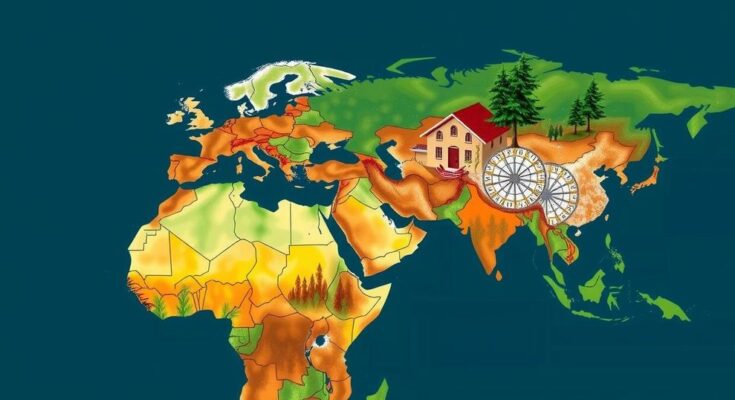The article discusses the emerging practice of loss and damage compensation for developing nations severely impacted by climate change, highlighted by the experience of Christopher Bingala, who received government aid following Cyclone Freddy. Wealthy countries are committing funds for climate-related disasters, with approximately $720 million pledged, but experts warn this may not suffice given worsening climate conditions and the increasing financial burden on these nations. The COP29 summit seeks to clarify fund allocation to effectively support vulnerable communities.
In the wake of Cyclone Freddy, a catastrophic tropical storm that devastated southern Malawi in 2023, individuals such as Christopher Bingala have started to receive crucial financial support through a newly established loss and damage compensation fund. This initiative is designed to assist low-income nations disproportionately affected by climate change, despite their minimal contribution to global emissions. With pledges totaling approximately $720 million from wealthy nations, including the European Union and the United States, the utilization of these funds focusses on rebuilding lives and infrastructure, although experts caution that this amount may be insufficient given the escalating frequency and intensity of climate-related disasters. As nations convene at the ongoing COP29 climate summit in Baku, Azerbaijan, discussions center around the appropriate allocation of funds to support developing countries as they navigate environmental calamities and seek sustainable recovery pathways.
The background of this issue lies in the stark contrast between the contributions to climate change by developed and developing countries. While wealthier nations have historically emitted significant greenhouse gases, leading to global warming, poorer countries often bear the brunt of its impacts. Cyclone Freddy’s impact on Malawi symbolizes the urgent need for a framework that provides real-time monetary support to those suffering the consequences. This situation has pushed countries to reach an agreement for a dedicated fund aimed at addressing loss and damage, a concept gaining traction in international climate negotiations.
In conclusion, the adverse effects of climate change disproportionately affect poorer nations that have contributed little to the crisis. With the establishment of funds aimed at compensation, such as the one pioneered by the Scottish government, there is hope for resilience and recovery among vulnerable populations. However, the conversation at the COP29 summit reveals that much remains to be done to adequately address the growing challenges posed by climate change and ensure the necessary financial support flows to those in dire need.
Original Source: www.delawarepublic.org




